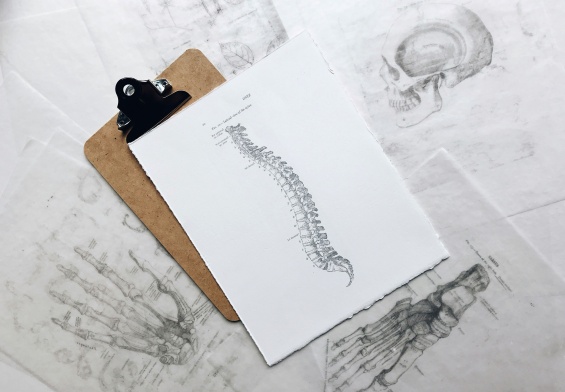Many times individuals complain about experiencing back pain that is associated with drastic changes in the weather. In some cases individuals claim that they can predict cold weather is coming long before the announcement by their local weather man. There is no doubt that many people experience back pain that seems to worsen when winter sets in and especially when the temperature falls to below freezing. The question is not so much what causes seasonal back pain, as what options do we have when it strikes?
When should I see a doctor about back pain?
Anytime back pain becomes severe it merits a trip to the doctor’s office. They will most likely ask about the history of the back pain. Be prepared to tell the physician when the pain began, when it feels better or when it feels worse, how long it generally lasts and what steps have been taken to alleviate the pain. It’s also important to inform the doctor about any trips to the ER or visits with an orthopedic surgeon in NJ concerning the pain in the back. It’s quite alright to explain when it seems that the back pain is directly related to seasonal changes.
Can the weather cause back pain?
In many cases, seasonal back pain affects the elderly. And most of the time, it is due to a form of arthritis. There are some individuals who are specifically susceptible to seasonal back pain. This includes:
- Older Individuals
- Workers who carry heavy loads
- Individuals who are obese
- Individuals who have experienced spinal injuries
- Those who have had spine surgery
Scientists have finally made some connections to seasonal or weather changes and back and joint pain. Most studies suggest that seasonal back and joint pain is related to changes in the barometric pressure. The body contains many nerve endings that are very sensitive to changes such as temperature, texture and pressure. It is supposed that these nerve endings also detect changes in the barometric pressure and pain ensues. Some also suggest that back pain is due to trapped nerves. After spine surgery or an injury to the spine, it is not uncommon for there to be nerves totally out of place and very susceptible to pressure and changes. This is interpreted by the body and the brain as pain.
What can I do about seasonal back pain?
There are several things that might help those who experience seasonal back pain. Remember to always check with an orthopedic surgeon or other regular physician about developing a treatment plan. What works for one, might not work for another and depending on the cause of the back pain, some treatment options can cause damage. Always ask for a doctor’s okay before trying any treatment option.
Bundle Up
One thing that can help some people who experience seasonal back pain is to try to keep warm. This may be as simple as wearing an extra layer of clothes. When a trip outside cannot be avoided, bundle up with a heavy coat, gloves and a hat. Extra layers can help keep a body warmer which will reduce the changes that it will become tense and back pain will ensue.
Body Trimming Belt
Some people have also purchased a special body trimming belt from the fitness store. It is actually designed to aid in slimming down the waste, but it does so by using heat. In the colder months, it might be useful to help keep the body warm and when the core of the body maintains heat it can prevent pain during the day.
Stretching to Stay Mobile
Doing stretches can seem counterproductive, but staying loose and limber can help reduce back pain. Do not be afraid to stretch as often as is reasonable since the body is much more likely to become injured in the winter, or colder months. Stretching and staying flexible especially prior to exercising outside and doing activities such as shoveling snow can help prevent further back injuries and help reduce back pain.
Physician Approved Medications
Talk to the orthopedic surgeon or physician to see what types of anti-inflammatory medications might help prevent or reduce back pain due to seasonal changes. Sometimes small doses of over the counter medications can help reduce back pain. In other cases the physician or surgeon may need to prescribe a stronger medication to help keep the pain at bay. In rare instances, it may also be necessary to temporarily take both an over the counter and a prescription medication. Just always check with the surgeon or prescribing physician before adding or removing any pharmaceutical products from the daily regimen.



